On December 18 at 23:59, a 6.2-magnitude earthquake struck Jishishan Bonan-Dongxiang-Salar Autonomous County in Linxia Hui Autonomous Prefecture, Gansu Province. According to CCTV News, the earthquake has claimed the lives of 118 individuals thus far. What should be done when an earthquake strikes suddenly? Where should we seek shelters indoors and outdoors? Please keep this earthquake self-rescue and escape guide handy.
A Guide to Action during Earthquake
What to do when encountering an earthquake indoors?
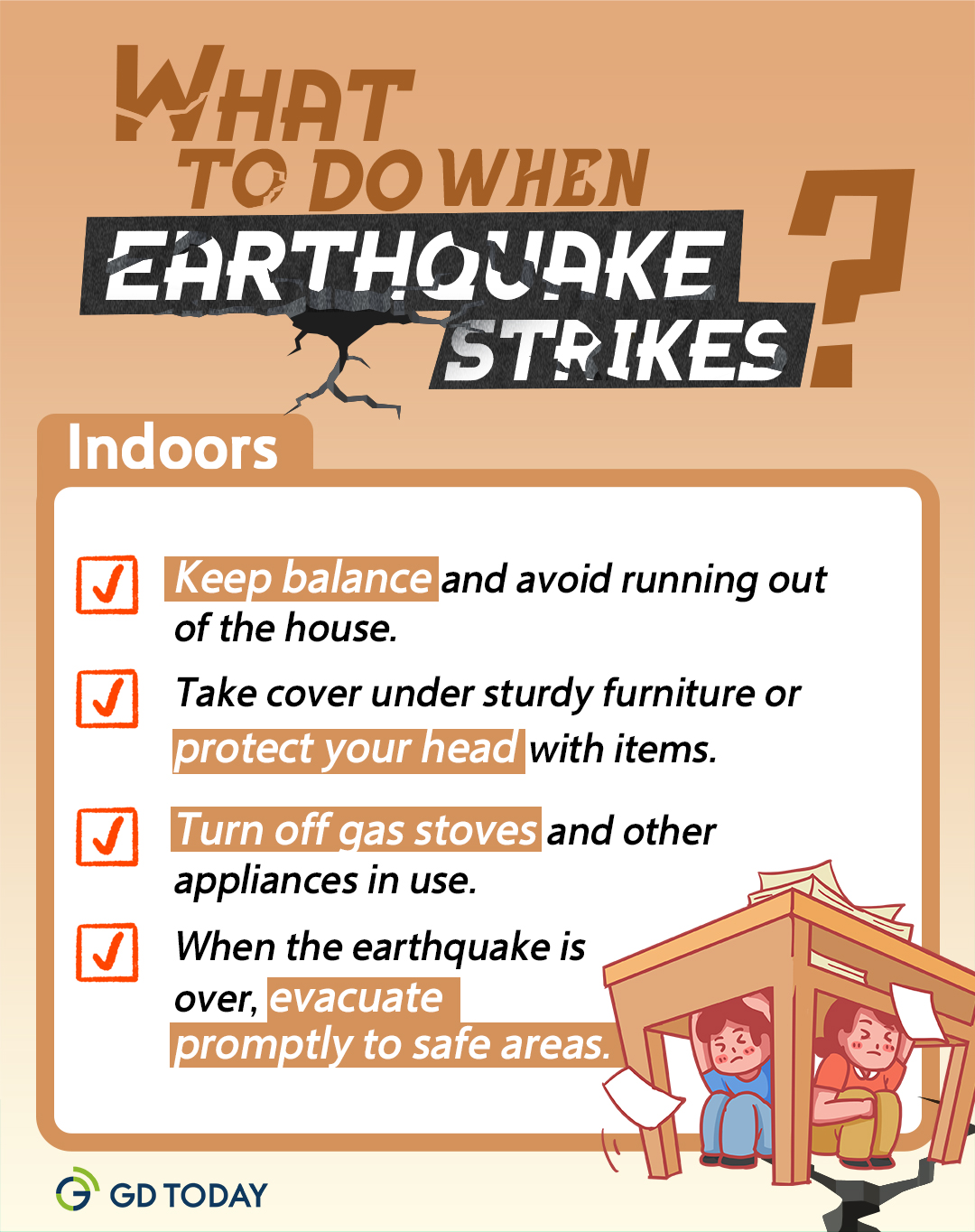
If you are indoors during an earthquake, try to keep balance and avoid running out of the house or shifting to other locations. Take cover under sturdy furniture, such as a table, or protect your head with items like cushions and pillows until the shaking stops. Turn off heating stoves, gas stoves, and other appliances in use when you feel shaking or during the breaks of major tremors. When the earthquake is over, evacuate promptly to safe areas.
What to do when encountering an earthquake while sleeping?
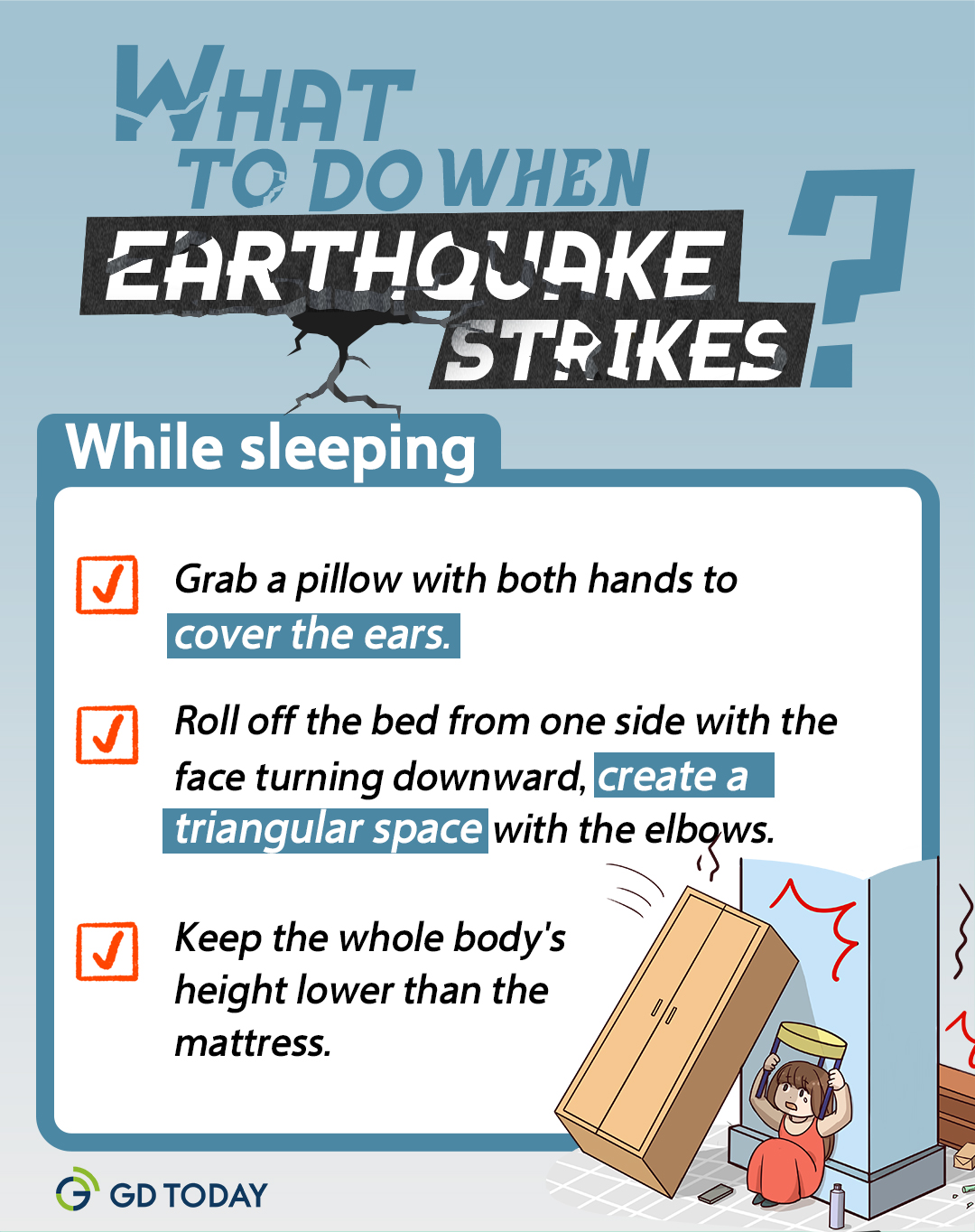
If awakened by the shaking during sleep, grab a pillow with both hands to cover the ears. Roll off the bed from one side with the face turning downward, create a triangular space with the elbows, and keep the whole body's height lower than the mattress.
What should you do when encountering an earthquake in public places?
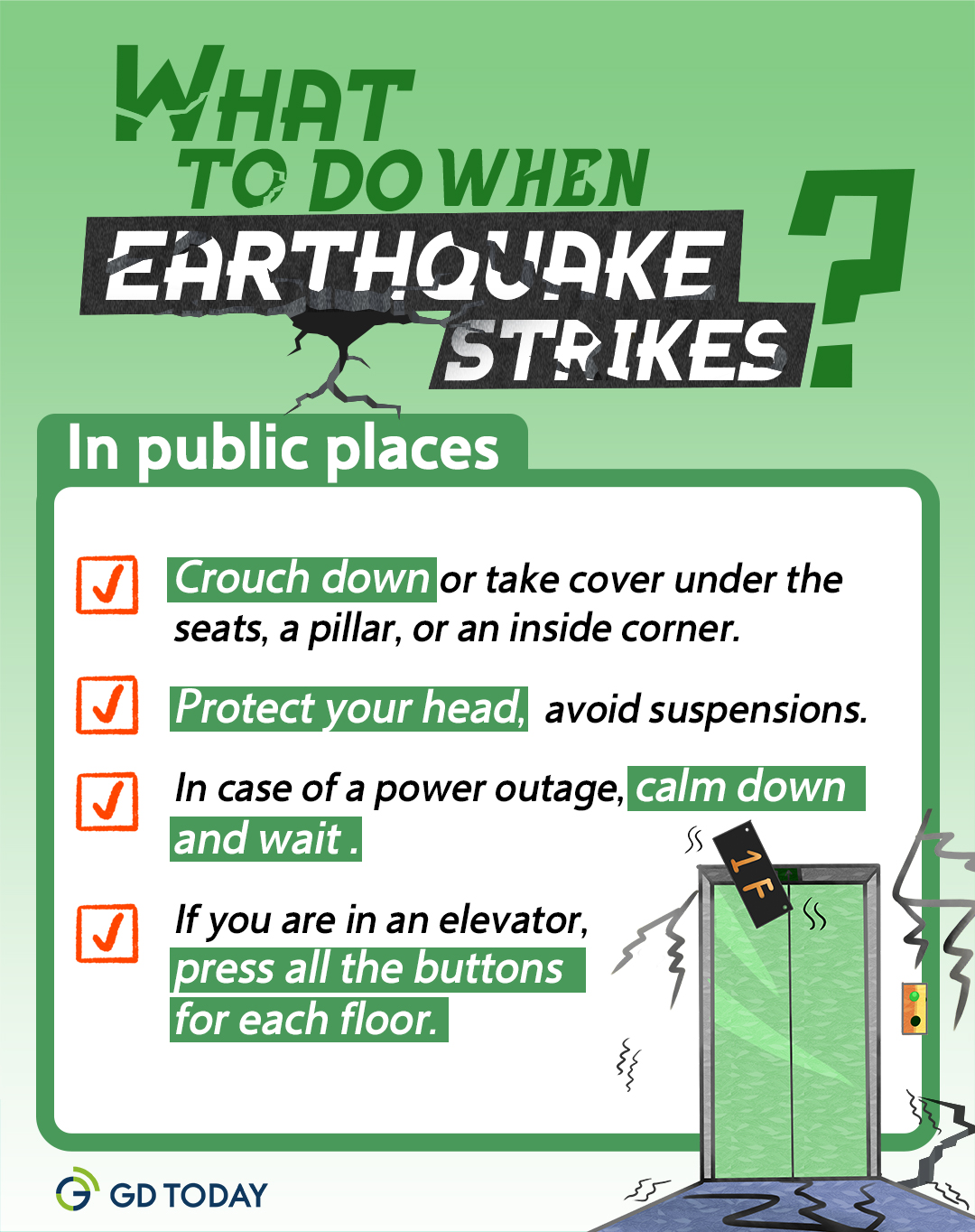
If you are in a cinema or gymnasium, crouch down or take cover under the seats, use bags or other items to protect your head, and avoid suspensions such as chandeliers and fans. In case of a power outage, refrain from shouting and wait until the earthquake is over, then follow the instructions of the staff to evacuate in order. If inside a shopping mall, bookstore, or exhibition hall, crouch down beside a sturdy counter, low furniture, a pillar, or an inside corner while protecting your head with hands or other objects.
If you are having class in the classroom, follow the teacher's instructions, cover your head, close your eyes, and take cover under your desk without running around or jumping out of windows. When the earthquake stops, evacuate the classroom to nearby open areas.
If you are in an elevator at the time of an earthquake, press all the buttons for each floor. Once the elevator stops, leave it immediately. When trapped, use the dedicated telephone inside the elevator to contact the management office for assistance.
What should you do when encountering an earthquake while driving?
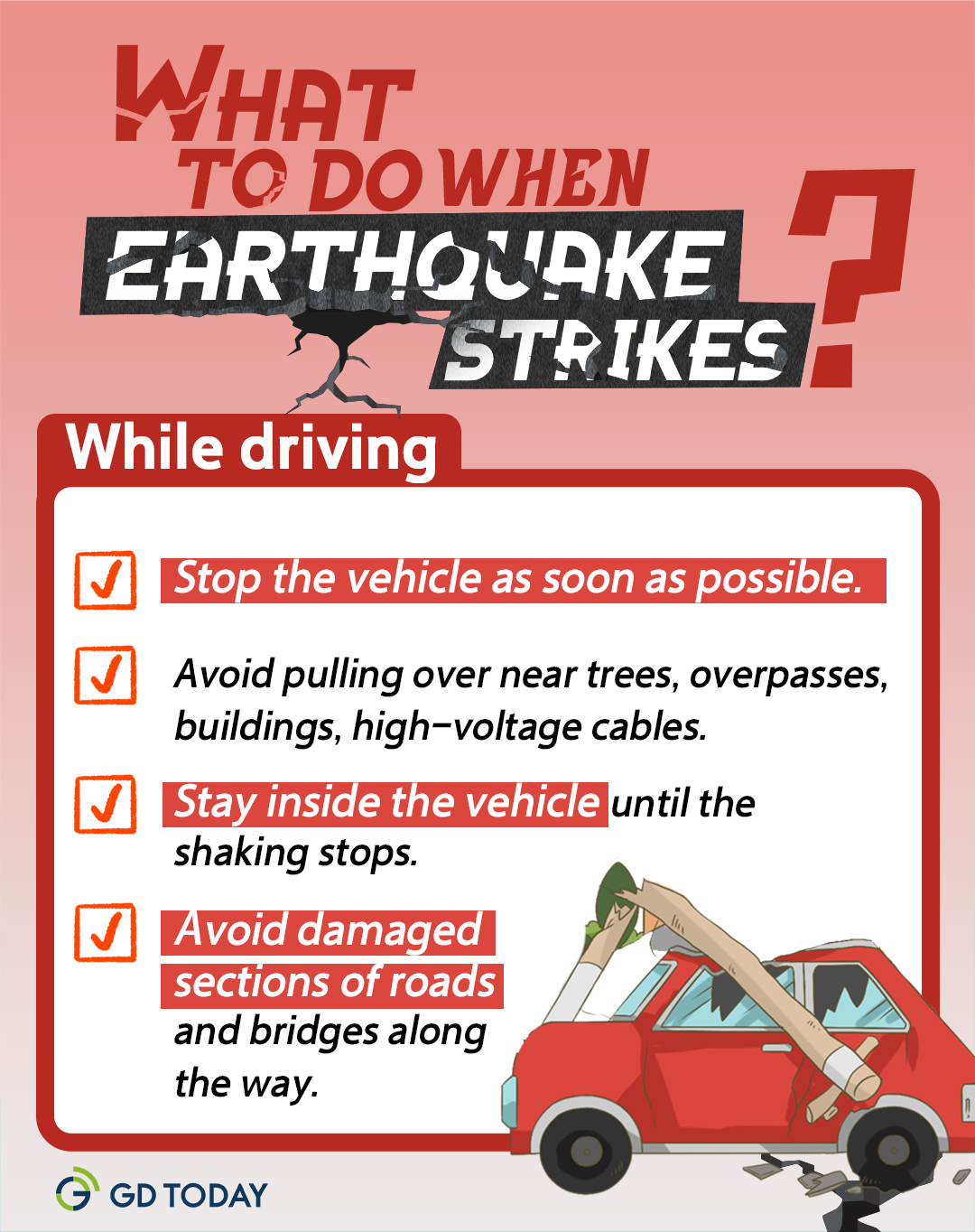
If you are driving when an earthquake occurs, stop the vehicle as soon as possible. Avoid pulling over near trees, overpasses, buildings, high-voltage cables, or intersections. Stay inside the vehicle until the shaking stops since the car can protect you from falling objects. When the earthquake is over, evacuate to a safe area. Remember to avoid damaged sections of roads and bridges along the way.
What should you do when encountering an earthquake outdoors?
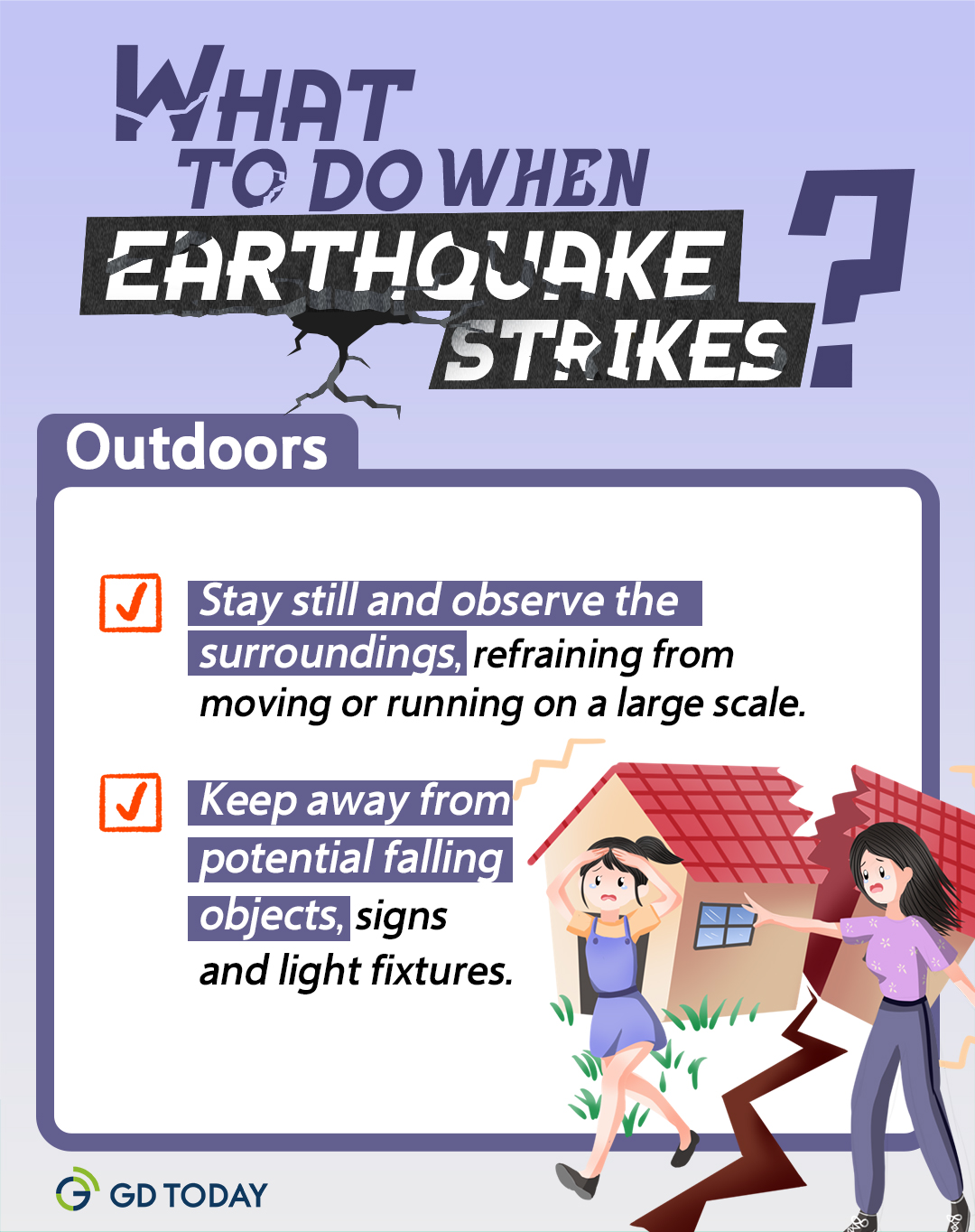
When you are outdoors during an earthquake, stay still and observe the surroundings, refraining from moving or running on a large scale. Keep away from potential falling objects such as rockfalls, street lamps, buildings, etc. Note that although some buildings are earthquake-resistant, care should still be taken to avoid falling signs and light fixtures.
Simple and effective methods to stay warm:
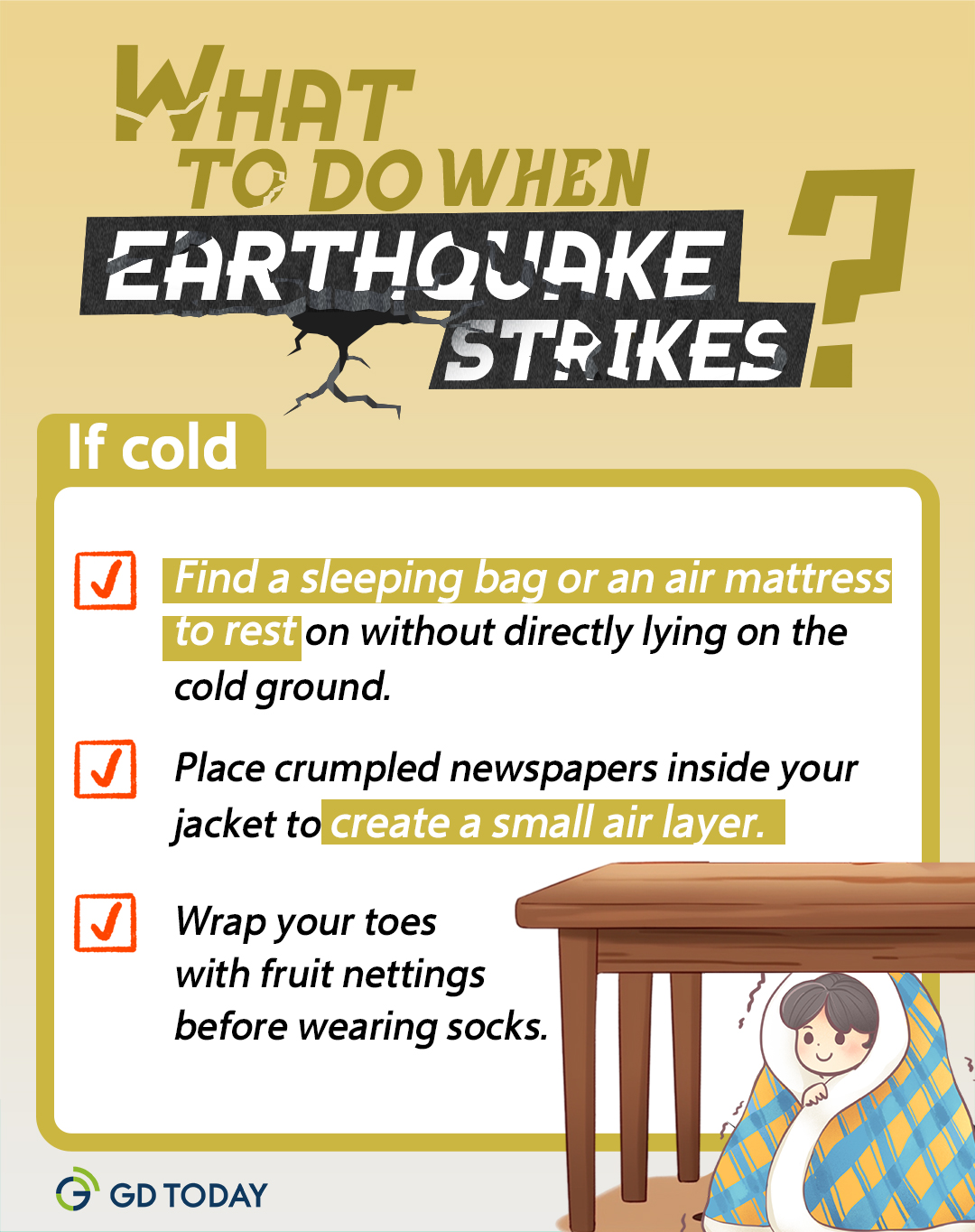
1. Find a sleeping bag or an air mattress to rest on without directly lying on the cold ground.
2. Place crumpled newspapers inside your jacket to create a small air layer, which will effectively reduce heat loss and keep you warm.
3. Place crumpled newspapers into a plastic bag and put your feet inside, and it will keep your feet warm.
4. Wrap your toes with fruit nettings before wearing socks, which will keep your feet warm, too.
5. Polyester film blankets commonly used for outdoor expeditions have excellent heat insulation properties. Draping it over can help prevent heat loss.
Poster: Mia
Editor: Steven, Monica, Rofel, Hong Ting, James
















